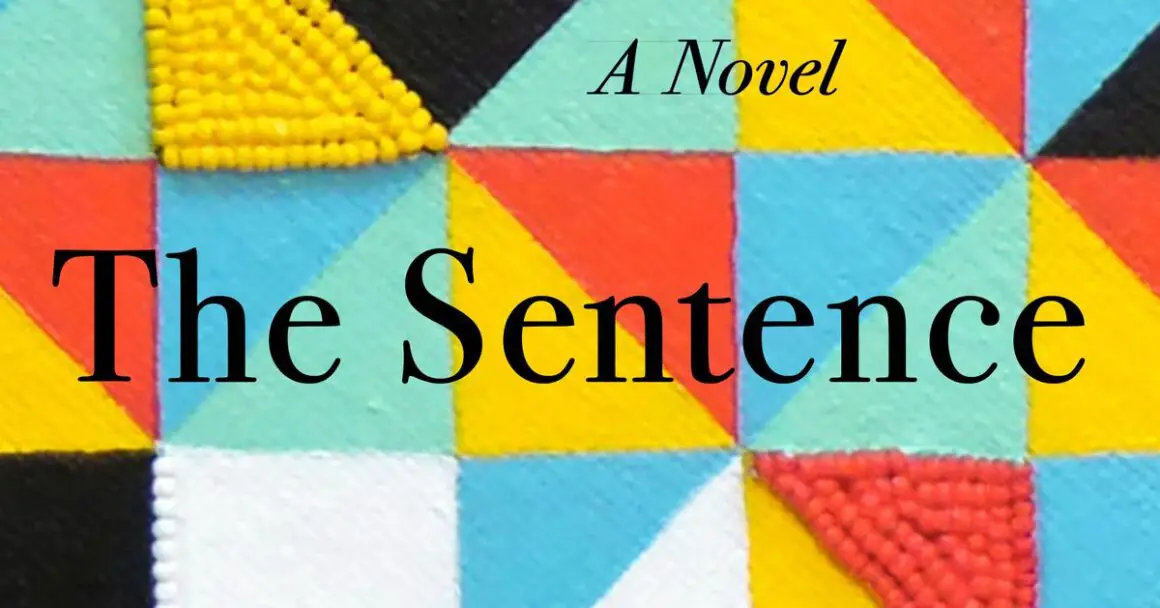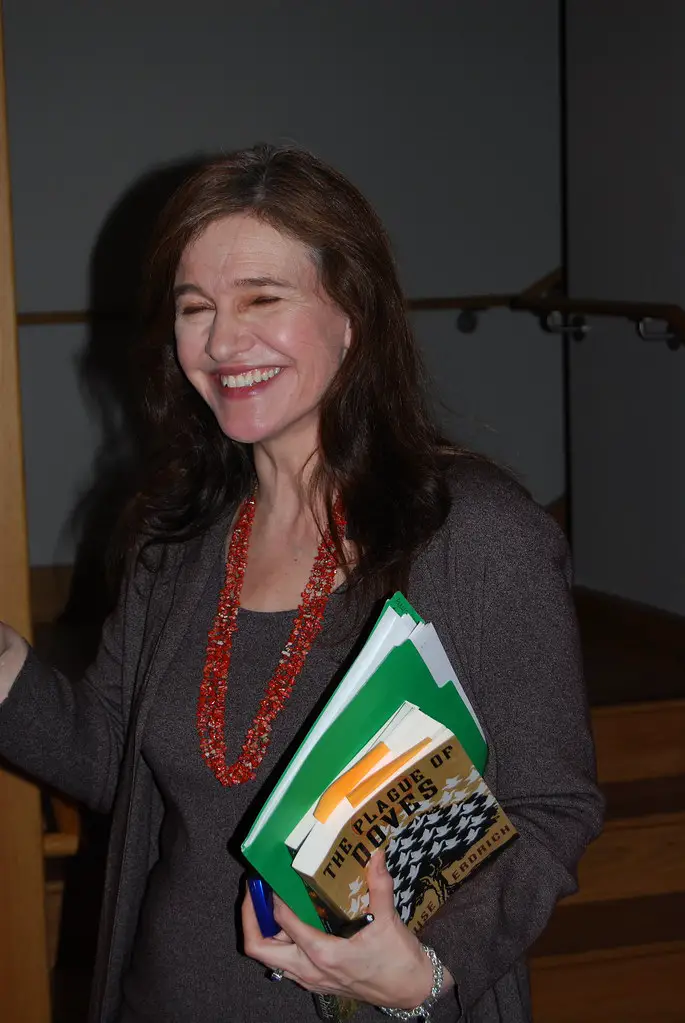“This is a dark time for little bookstores and we probably won’t make it,” she said. “Would you like a job?”
With that sentence, Louise Erdrich pivots from the opening setup of her novel, The Sentence, to the lives and affairs of a small staff running a modest bookstore in Minneapolis at a time of great upheaval in American life. The story bounces between the perspectives of indigenes to blacks and whites and everyone else making up the American mosaic. It ricochets off the pandemic and the George Floyd demonstrations. It is permeated by eccentrics and ghosts. And all of these disparate elements meet at the vertex of The Sentence.
The First Sentence
The sentence is 60 years. Tookie, a member of the Ojibwe tribe who doesn’t remember her legal name, is duped by two friends into transporting a corpse across state lines. Even the fact that she did this with a stolen, read “borrowed,” truck, would not have earned her that excessive sentence. It was the crack cocaine taped to the body that sent her into this hopeless span of incarceration. It took her a couple of years to become resigned to her life and the gift of a dictionary to turn Tookie toward books as a way through what looked like an otherwise hopeless life.
It comes as a surprise then, to both the reader and Tookie, when the sentence is commuted after 10 years and she is set free. By now, words, sentences, and books are her lifeline, which, in turn, draws her to employment with a small Minneapolis independent bookstore and, subsequently, to marriage with the man who arrested her in the first place.

As in Erdrich’s Pulitzer Prize-winning novel, The Night Watchman, the lives and customs of contemporary indigenous Americans inform all aspects of the story and the characters. Their rich spirituality and traditions run throughout the tale and bring an additional level of understanding to the actions of these interestingly eccentric characters. Tookie, herself, was not raised with a deep commitment to her own traditions, but Pollux, her husband and a former tribal police officer, was. Pollux not only continues his native traditions for himself but also serves as a resource to the community and an endearing instructor for the reader.
The Ghost
Nevertheless, this novel is certainly not merely a vehicle for lessons in contemporaneous native American lives. It has a complicated, engaging plot that is anchored by the faithful customers of this little bookshop. Flora, the customer who the entire staff has dubbed the ‘most annoying,’ passes away. That small detail doesn’t keep her from continuing her visits to the shop. Well-known for browsing everything before making a choice, Flora clearly sees no reason to change her pattern.
Every day, the clatter of Flora’s many bracelets can be heard as books fall to the floor, papers scatter, and doors slam. But Flora’s least endearing trait was her status as a ‘wannabe.’ Flora wanted to be an Indian. She had often shown Tookie and others on the staff a photograph of a woman, supposedly her great-grandmother, who Flora claimed to be Native American. It was a grainy photo and Tookie was never convinced.
The most dissatisfied of their customers, in keeping with his nickname, was forever searching for something new to read. Tookie often moved through long lists of suggestions before hitting a few that he was willing to purchase. Despite her best efforts, he only read fiction and only books that he had previously read fewer than three or four times.
The Chaos

Just as the reader is fully enjoying the quirks of the staff and customers and come to accept the haunting of this little shop, Erdrich adds new elements to bring the story fully into the modern day. The pandemic hits along with the George Floyd incident that turns Minneapolis into the center of the country’s attention and explosive anger. There are riots and fires that threaten many small businesses and homes, including the small bookstore already struggling with the pandemic shutdown. Erdrich is able to add a new perspective to this now-familiar event as Tookie compares the treatment of Floyd to the less-publicized but long historied treatment of indigenous peoples by the Minneapolis police.
One theme runs throughout the story: The power of books, words, and sentences. Although the plot begins with a sentence representing the duration of time that Tookie was to spend in prison, it is the other kind of sentence–the expression of words and ideas–that drives the remainder of the book. Tookie eventually discovers the truth of Flora’s heritage through the written word. She nurses her husband through a near-fatal bout with COVID, sustains herself with words, and reconnects the disparate threads of her family by eventually finding the right words.
In the back matter of the book. Louise Erdrich reveals that she herself owns a small bookstore and reassures the reader that they have come through the pandemic and the closures and continue to thrive. The real treasure at the end of the book is the long list of titles that are mentioned throughout the story as suggestions for the customers. It’s a long and varied list that should keep any reader satisfied long after the last page of this story has been reached.
The Final Sentence
And speaking of the last page, what of Flora’s ghost? Pollux suggests traditional measures to send ghosts away that do not work. Some of the staff also hear Flora’s ghost while others do not, but none seem to be the main target of Flora’s efforts, which are clearly directed at Tookie. After taking every measure she can think of to either accept Flora or send her away for good, Tookie finally stumbles onto a solution. A simple sentence forgiving Flora and her ancestors, and bidding her to go in peace allows Flora’s ghost to move on to her rest and Tookie to continue her work enriching life with the words and sentences to be found on the bookstore’s shelves.
